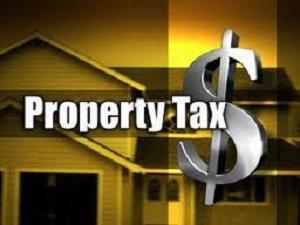Overview

The County Appraisal District establishes taxable values. Anything that might change the value, such as an exemption, property description or protest, is handled by the Appraisal Districts.
Information provided by, Elizabeth Casarez, Tax Assessor / Bookkeeper
Texas Property Tax Code Sec 31.01 states that failure to receive a tax statement does not change the due date or waive the penalty and interest. It is the property owner’s responsibility to know when taxes are due and the taxing authorities that will be taxing the property.
Taxes are due on October 1st.
| 2024 Current Tax Rate | .9892 | ||
| M & O Tax Rate | 0.7092 | ||
| I & S Tax Rate | 0.2800 |

| Contact Tax Department | |
| Telephone: | (956) 347-5520 |
| Fax: | (956) 347-5201 |
| Address: | 8240 Simon Gomez Street |
| Lyford, Texas 78569 | |
| Mailing Address: | P.O. Box 220 |
| Lyford, Texas 78569 | |
| Office Hours: |
Monday thru Friday 7:30 a.m. to 4:30 p.m. |
Property taxes become due on Oct. 1, and taxpayers will have until Jan. 31 of the following year to pay their tax bill before taxes become delinquent. It is each taxpayer's responsibility to seek out all taxes due, as failure to send or receive a tax bill does not affect the validity of the tax, penalty, and interest, due date, existence of a tax lien or any procedure instituted to collect a tax.
Exemptions, Values, Ownership & Address Changes
The County Appraisal District where your property is located identifies properties to be taxed. Appraisal is based on market value as of Jan. 1 of the tax year. They determine the taxable owner, address, appraised value and the granting of exemptions. For more information on exemptions, values, or to report changes of ownership and / or address, please call your local County Appraisal District. For contact information, please click on the Appraisal District link.
Types of payments accepted.
Cash
Money Orders
Cashier Checks
Personal Checks
Debit Card (Transaction fees apply)
Credit Card (Transaction fees apply)
Please make check payable to the Lyford Consolidated Independent School District Tax Office or LCISD Tax Office and be sure to include your account number.
Tax Rates
The School District tax rate is usually set during September of the tax year.
Lyford Consolidated Independent School District Tax Rates (over the last 6 years)
|
Tax Year |
2024 |
2023 |
2022 |
2021 |
2020 |
2019 |
2018 |
|
Tax Rate |
0.9892 |
0.9892 |
1.2403 |
1.1203 |
1.2147 |
1.2284 |
1.32 |
Tax Liability Calculation
To determine your tax liability, divide the value of your home by 100, and then multiply by the current tax rate.
Exemption Eligibility
Tax exemptions exclude all or part of a property's value from taxation. The School District offers numerous exemptions. You must apply for all exemptions through your local County Appraisal District.
The School District offers the following exemptions:
Over 65 Homestead
Disabled Disabled Veteran
Payment Schedule
Taxes are due Oct. 1st of each tax year and are considered delinquent if payment is not postmarked on or before Jan. 31. If Jan. 31 falls on a Saturday or Sunday, taxes are considered delinquent if not postmarked on or before Feb. 1st.
Penalty and interest accrue at the following rate if taxes remain unpaid by the delinquent date. Delinquent taxpayers will be receiving statements from Linebarger, Goggan, Blair & Sampson Delinquent Tax Attorneys office.
|
FEBRUARY |
MARCH |
APRIL |
MAY |
JUNE |
JULY |
|
7% |
9% |
11% |
13% |
15% |
18% |
|
* For August and thereafter, add 1 percent per month. |
|||||
Payment Options/Deferrals for Senior Citizens
If taxpayers claiming the Over 65/Disabled Exemption pay at least one-fourth of the taxes due before the delinquency date of February 1st, the balance may be paid in three equal installments without penalty or interest. The first installment must be paid before April 1st, the second installment before June 1st and the third installment before August 1st.
If you are a homeowner age 65 or older, you may defer or postpone paying any delinquent property taxes on your home for as long as you own and live in it. To postpone your tax payments, file a “tax deferral affidavit” with your appraisal district. A tax deferral only postpones paying your taxes. It does not cancel them. Interest is added at the rate of 8 percent per year.
Once you no longer own your home or live in it, past taxes and interest become due. Any penalty and interest that was due on the tax bill for the home before the tax deferral will remain on the property and also become due when the tax deferral ends.
